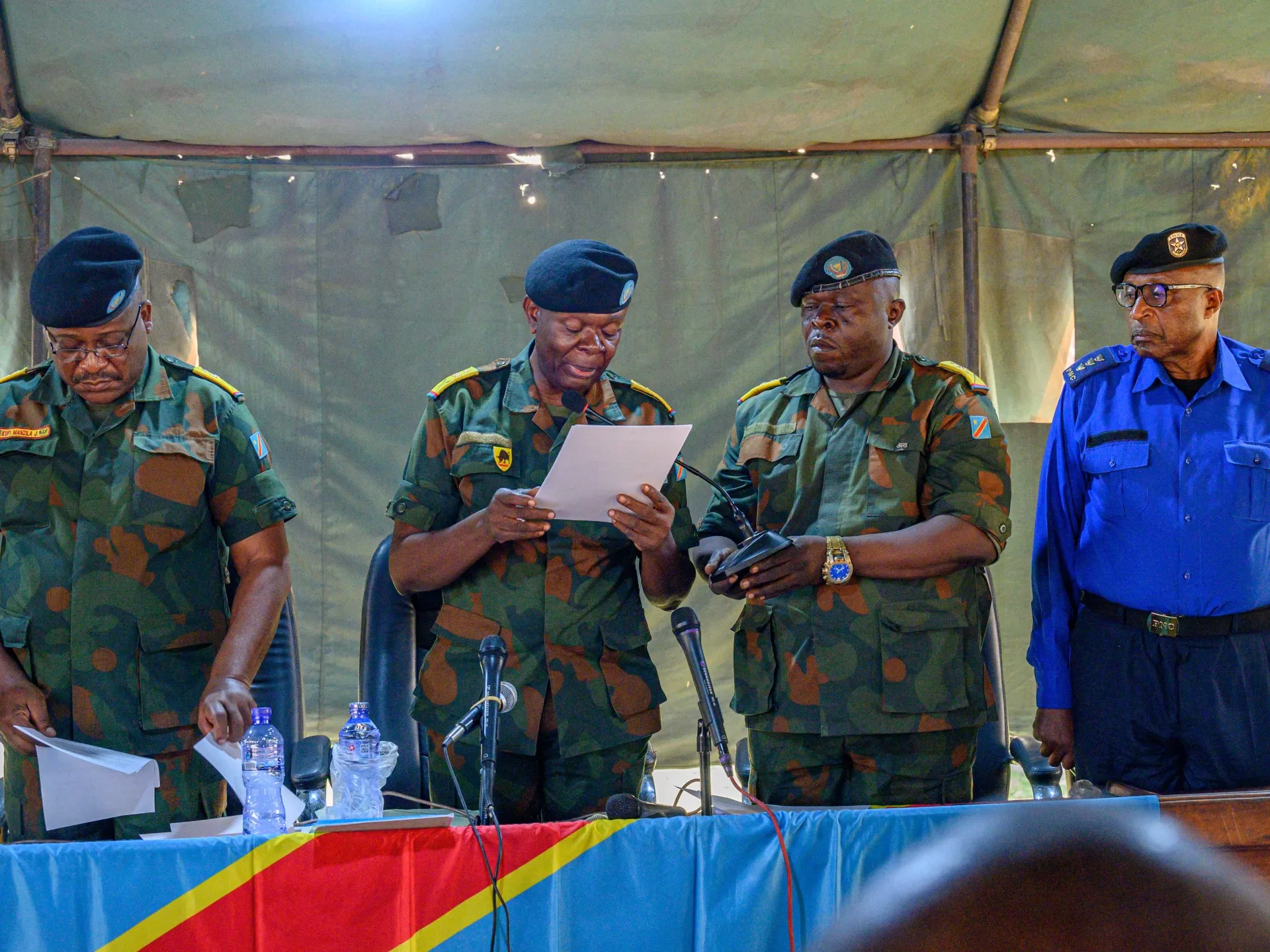The Congolese government in March had lifted a moratorium on the death penalty that was in place since 2003.
A military court in the Democratic Republic of the Congo has sentenced 26 people accused of involvement in armed groups, including the M23, to death after a high-profile trial that started late last month.
Corneille Nangaa, the leader of the Alliance Fleuve Congo (AFC) was found guilty of war crimes, participation in an insurrection and treason.
Nangaa and 20 other defendants were sentenced to death in absentia on Thursday, as they are currently on the run.
The five accused who were present for the trial have five days to appeal the sentence, the president of the court said.
The prosecutor in the trial, which began on July 24, had called for death sentences against 25 of the defendants and a 20-year jail term for one defendant.
Nangaa, the former president of the DRC’s electoral commission, launched the AFC political-military movement in December with the aim of uniting armed groups, political parties and civil society against the government.
One of its members is the M23 armed group accused of mass killings in eastern DRC’s decades-long conflict.
The key M23 figures on trial included its president Bertrand Bisimwa, military chief Sultani Makenga and spokespeople Willy Ngoma and Lawrence Kanyuka.
In a text message from an undisclosed location, Nangaa told The Associated Press news agency that “this nauseating judicial saga reinforces our struggle for democratic normality in Congo”.
In March, the Congolese government defied criticism from human rights organisations and lifted a moratorium on the death penalty that had been in place since 2003, aiming to target military personnel accused of treason.
President Felix Tshisekedi, along with the United States and United Nations experts, accuses neighbouring Rwanda of giving military backing to the Tutsi-led M23, which has seized huge swaths of territory in eastern DRC since late 2021.
Racked by conflict for more than 30 years, the DRC’s instability is caused by complex and deep-seated factors, as well as a multitude of actors.
M23 is among dozens of rebel groups active in the DRC’s restive east, many the legacy of a regional conflict that erupted in the 1990s after the fall of longtime dictator Mobutu Sese Seko.
Tshisekedi has accused his predecessor Joseph Kabila of preparing an “insurrection” and of belonging to the AFC.
“The AFC is him,” he told the Congolese radio station Top Congo in Belgium, where he is staying for medical treatment, on Tuesday.
In 2019, Kabila handed over power to Tshisekedi, a former opponent, proclaimed winner of the controversial December 2018 presidential election.
Several members of Kabila’s People’s Party for Reconstruction and Democracy (PPRD) party joined the AFC and are awaiting the verdict of a military court in Kinshasa, where they could face the death penalty.
